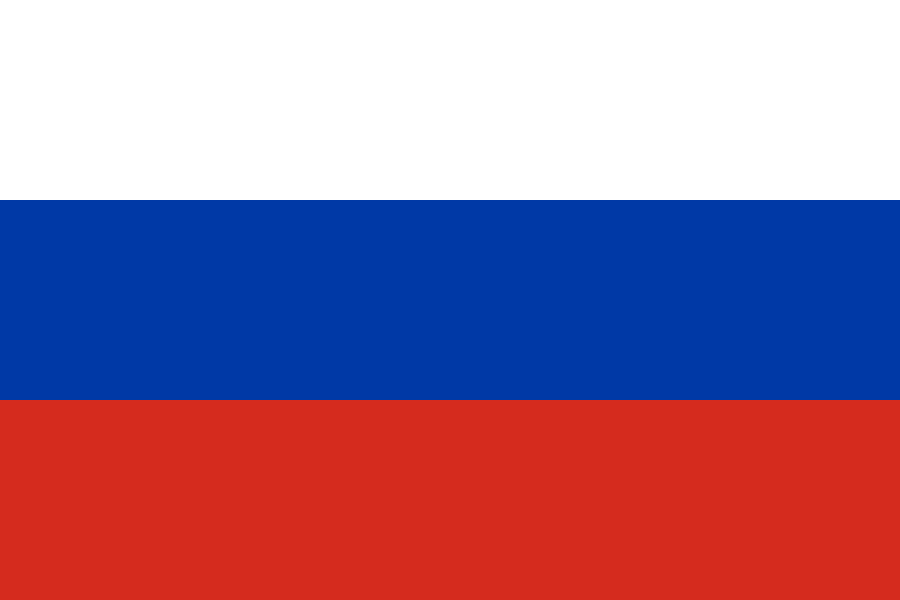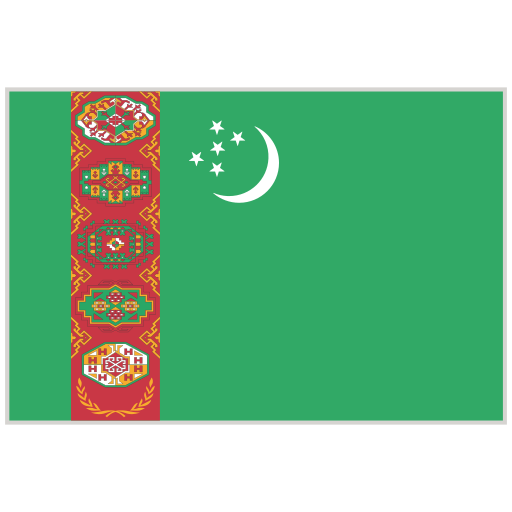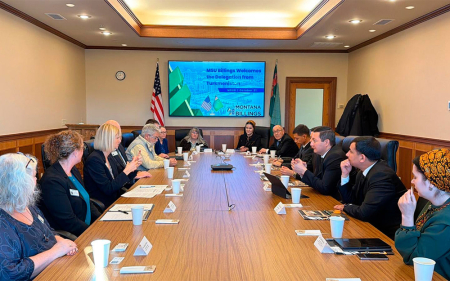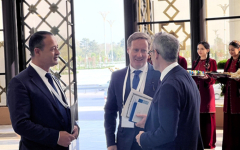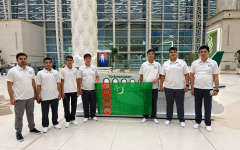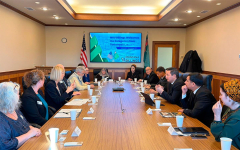As part of a working visit to the USA, representatives of Turkmenistan's education sector visited Montana State University Billings.
During the visit, they met with university leadership and toured the campus. Practical formats for educational cooperation in business education, healthcare, nursing, information technology, and pedagogy were discussed.
The parties planned to launch joint short-term courses on data analytics, financial literacy, and project management using real-world cases with the participation of regional companies. Planned activities also include faculty exchanges, online classes, and micro-tracks in applied programming and cybersecurity fundamentals.
The idea of jointly using the University of Montana's Canvas LMS educational portal as a unified platform for collaborative teaching, course templates, and monitoring of learning outcomes was supported.
Deputy Minister of Education of Turkmenistan Azat Atayev presented an overview of the country's achievements in education. The program's updating in line with international quality standards, the development of digital education and facilities, increased research activity, and the university's participation in international rankings were highlighted.
Following working meetings with the university's leadership and experts from Missoula College, part of the University of Montana, the potential for interdisciplinary projects on water resource management and climate resilience was discussed.
The Turkmen side expressed interest in developing joint online modules for subsequent testing at a national university.
A key part of the visit was a meeting with University of Montana Vice Chancellor Adrea Lawrence. Long-term partnership avenues were discussed, including the preparation of a Memorandum of Cooperation with an annual roadmap, the launch of joint courses on sustainable development and information technology, academic exchanges, and student internships.
During a session with the leadership of Missoula College and the Centre for Academic Excellence in Cybersecurity, the Turkmen side was presented with a cybersecurity educational program, as well as modern teaching methods for diagnosing and certifying IT infrastructure.
The parties expressed interest in exploring the possibility of creating a short-term professional development program for IT instructors at Turkmen universities, as well as a joint training laboratory/competence centre at a Turkmen university with methodological support from their American colleagues.
The Deputy Minister of Education of Turkmenistan emphasised that cooperation with the University of Montana is consistent with the strategic objective of strengthening human capital and implementing modern educational practices.
The Vice Rector for Research at Turkmen State University named after Magtymguly expressed interest in establishing collaboration in the fields of natural technologies, sustainable nature management, and water security, emphasising the importance of an interdisciplinary approach integrating ecology, geography, and digital analysis methods. The university expressed its readiness to launch joint educational modules and field schools, as well as to form sustainable research teams involving young scientists.
The Vice-Rector for Research at the Institute of Telecommunications and Informatics of Turkmenistan emphasised their readiness to develop cooperation in geographic information systems (GIS) and cybersecurity, with a focus on applied solutions for monitoring natural resources and protecting critical information infrastructure in education. Particular attention was paid to integrating GIS platforms with educational data and developing advanced training courses for IT instructors.
The Vice-Rector for Academic Affairs at the International University of Oil and Gas named after Yagshygeldi Kakayev confirmed their interest in developing cooperation in GIS for topographic and geodetic support, environmental monitoring, and infrastructure project optimization. The university representative noted the practical value of joint educational and research cases at the intersection of energy, ecology, and digital cartography and expressed their willingness to participate in joint publications and project activities.
Following the talks, the parties agreed to begin drafting a Memorandum of Cooperation, identify focal points, and form a working group to coordinate the work. The priority steps include developing a pilot online module on water security, ecology, and environmentally friendly technologies, elaborating the parameters of a cybersecurity program, and agreeing on a schedule for academic exchanges and summer schools.
Finally, the Turkmen delegation invited representatives from the University of Montana to visit Ashgabat and participate in relevant educational forums and exhibitions. The parties agreed to maintain constant communication to promptly coordinate further steps of cooperation.
turkmenistan.gov.tm

